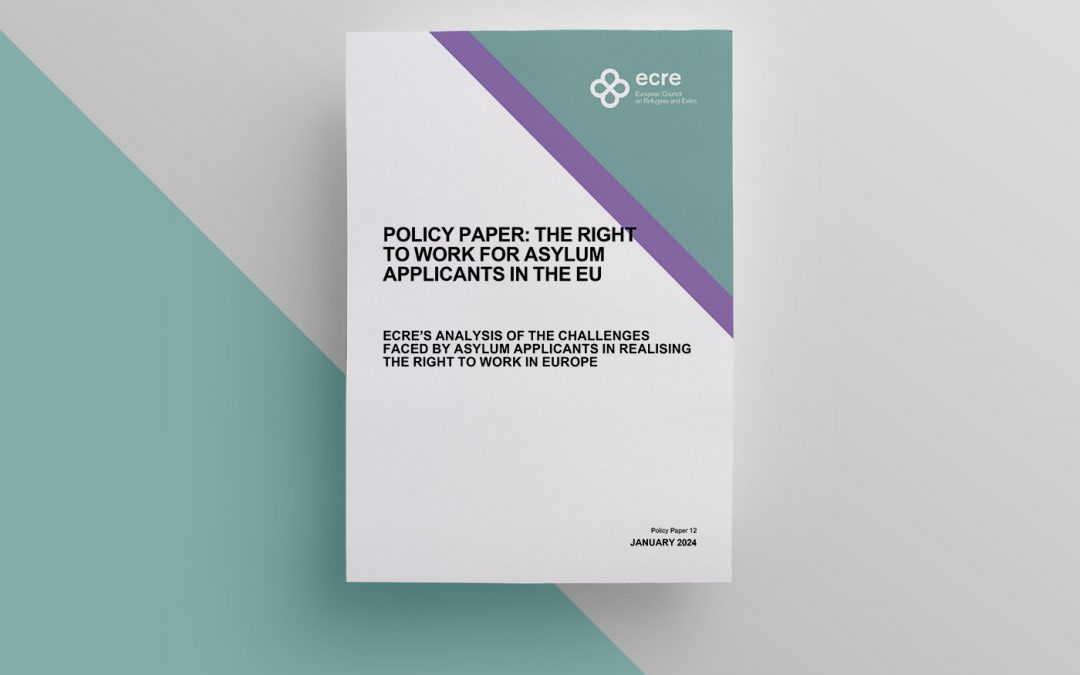ECRE has published a policy paper which examines the legal and policy developments affecting asylum seekers’ access to the right to work. The new paper identifies various challenges faced by asylum seekers in accessing the right to work, shares good practices, and provides recommendations to EU member states (MS) and the European Commission (EC) to promote this right. The Policy Paper is based on an analysis of 19 country reports in the Asylum Information Database, as well as additional desk research.
It is well established that the right to work is essential in ensuring the inclusion of asylum applicants and refugees in their host country, and in guaranteeing that they lead a dignified life. To meet the objectives of international refugee law and facilitate integration, EU asylum law obliges EU MS to provide asylum applicants with access to the labour market no later than nine months after lodging an asylum application. Despite this legal framework, implementation faces hurdles stemming from the varied transposition of EU secondary law, diverse practices among EU MS, and persistent structural challenges that have yet to be effectively addressed.
Numerous challenges impede the right to work for asylum applicants and undermine the principle of non-discrimination in employment. Based on the assessment of the situation across the EU, several challenges restricting employment opportunities for asylum seekers emerge, falling into distinct categories: 1) deterrent reception policies; 2) lack of or insufficient implementation of legal obligations; 3) excessive administrative requirements; 4) practical challenges, namely language barriers, lack of recognition of qualifications and lack of access to vocational training; and 5) discrimination. Despite these challenges, some EU MS have implemented positive examples, which are highlighted after each section.
The policy paper concludes with recommendations to EU MS and the EC to remove challenges that prevent asylum applicants from working and to prioritise self-sufficiency and social inclusion, focusing on sustainable, long-term integration into the labour market. The EU is urged to build upon its current momentum and political commitment to attract global talent by extending the same considerations to asylum applicants already within the Union.

